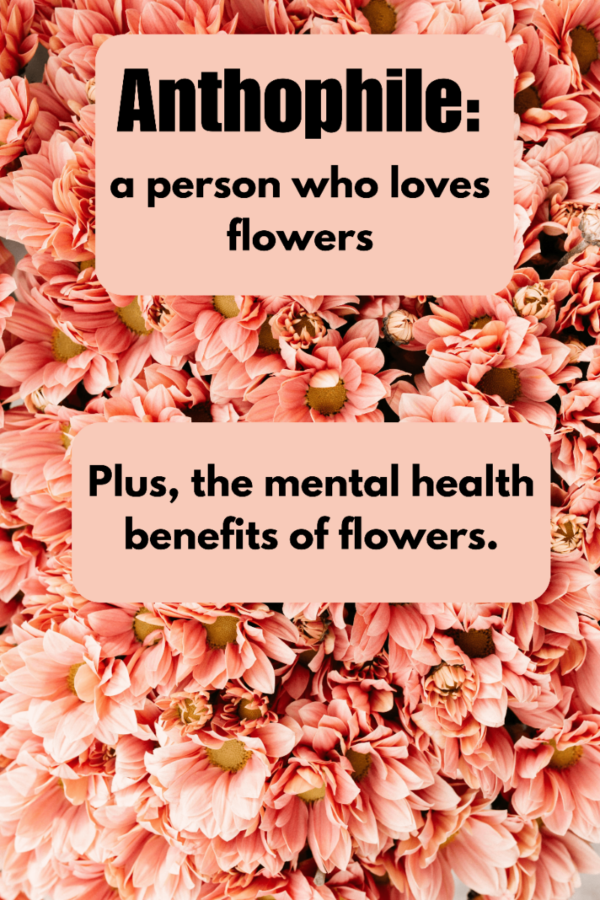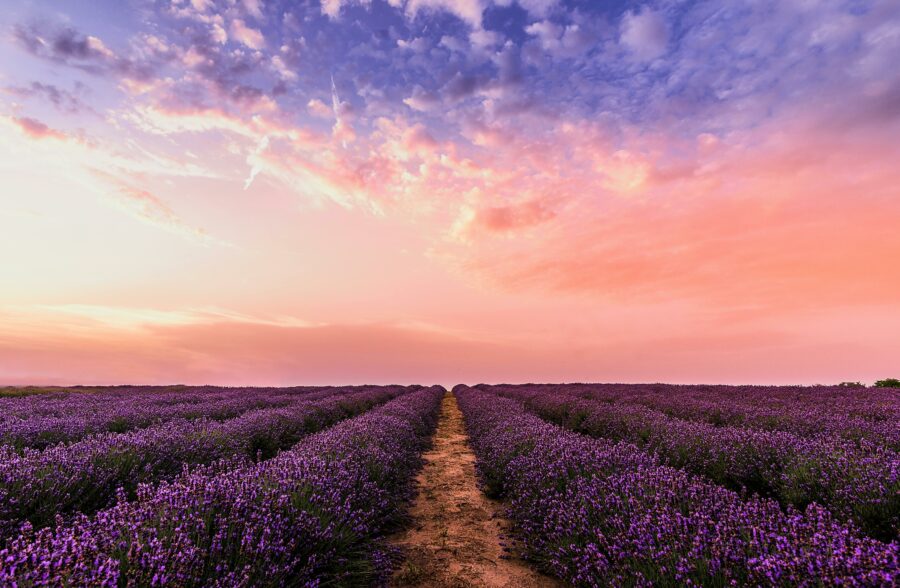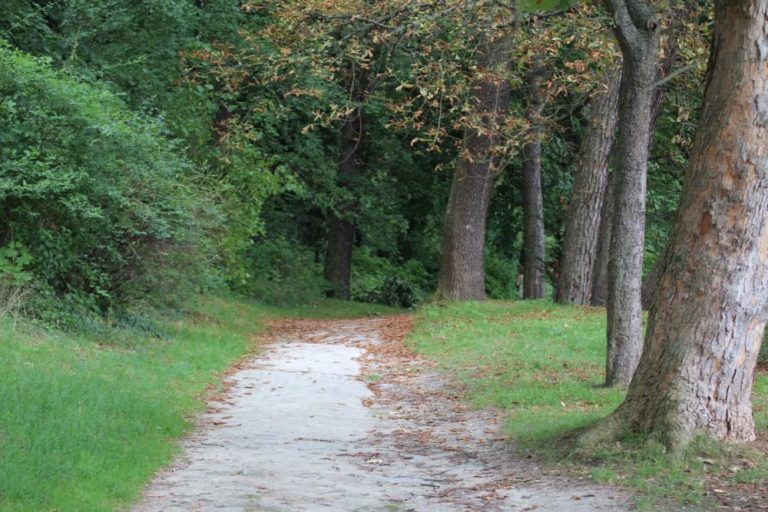Anthophile: Meaning, Traits, and Benefits
Love flowers? Then you might be an anthophile. Learn what it means and why it can be beneficial.

An anthophile is someone who has a deep love and appreciation for flowers. From the vibrant colors to the delicate fragrances, anthophiles find joy and beauty in the botanical world that surrounds them. In this article, we’ll explore what it means to be an anthophile and delve into the signs, characteristics, causes, benefits, and ways to develop a love for flowers.
The word anthophile comes from the Greek words for flower (“Anthos”) and love (“phile”).

Signs You Might Be an Anthophile
If you think you might be an anthophile, here are a few signs to consider:
You’re Drawn to Gardens and Flower Shops
If you gravitate towards gardens, botanical parks, or flower shops whenever you have the chance, you might be an anthophile. The sight and scent of blooming flowers fill you with a sense of wonder and delight.
You Love Decorating with Flowers
Anthophiles often enjoy incorporating flowers into their living spaces, whether it’s through fresh bouquets, potted plants, or floral arrangements. You appreciate the way flowers can brighten up a room and lift your spirits.
You Notice the Small Details
Anthophiles have a keen eye for detail and often notice the subtle differences between various flower species. From the shape of petals to the intricacies of a blossom’s center, you appreciate the unique characteristics of each flower you encounter.
You Feel Connected to Nature
Anthophiles feel a deep connection to nature, and flowers play a significant role in fostering this connection. Whether taking leisurely walks in nature reserves or simply stopping to admire wildflowers along the roadside, you feel at peace when you are surrounded by flowers and greenery.
You Enjoy Gardening
If you have a green thumb and enjoy spending time tending to plants and flowers in your garden, you likely have anthophile tendencies. Gardening allows you to nurture and cultivate beautiful blooms while experiencing the therapeutic benefits of working with soil and plants.
Characteristics of an Anthophile
Anthophiles may share certain personality traits and characteristics. A few common characteristics might include:
Appreciation for Beauty and Aesthetics
Anthophiles have a deep appreciation for the beauty and aesthetics of flowers. They see flowers not only as decorative elements but as works of art crafted by nature, each with its own unique charm and allure.
Sensitivity to Fragrance
Anthophiles are often sensitive to the fragrances emitted by flowers. They enjoy the sweet, delicate scents that waft through the air, whether it’s the intoxicating aroma of roses or the fresh, citrusy scent of jasmine.
Emotional Connection to Flowers
Flowers evoke a wide range of emotions in anthophiles, from joy and happiness to nostalgia and tranquility. The sight and scent of flowers can instantly uplift their mood and provide a sense of comfort and solace during challenging times.
Curiosity and Learning
Anthophiles are curious by nature and enjoy learning about different flower species, their characteristics, and growing conditions. They often seek out books, websites, and gardening forums to expand their knowledge and deepen their appreciation for flowers.
Creativity and Expression
Flowers inspire anthophiles to express their creativity through floral arrangements, photography, painting, or writing. They enjoy experimenting with different colors, shapes, and textures to create visually stunning compositions that capture the essence of flowers.
What Causes Someone to Be an Anthophile?
There are several factors that can contribute to someone becoming an anthophile:
Positive Experiences with Flowers
Anthophiles often develop their love for flowers through positive experiences during childhood or adulthood. Whether receiving a bouquet of flowers on a special occasion or spending time exploring botanical gardens with family and friends, these experiences can shape their appreciation for flowers.
Cultural and Social Influences
Cultural traditions, social norms, and media portrayals of flowers can also influence someone’s affinity for them. Growing up in a culture that values flowers as symbols of beauty, love, and celebration can foster a lifelong love for flowers.
Biological and Evolutionary Factors
Humans have evolved to appreciate and rely on flowers for their aesthetic appeal, fragrance, and role in pollination. This innate attraction to flowers may be hardwired into our biology, making us naturally predisposed to become anthophiles.
Personal Traits and Preferences
Individual personality traits, such as sensitivity to beauty, curiosity, and creativity, can predispose someone to become an anthophile. Those who are naturally drawn to the beauty of the natural world are more likely to develop a love for flowers.
Benefits of Being an Anthophile
Flowers can have a positive impact on mental health and well-being. A few positive aspects of being an anthophile include:
Enhanced Mood and Well-being
Surrounding yourself with flowers can have a positive impact on your mood and overall well-being. Studies have shown that exposure to flowers can reduce stress, anxiety, and depression while promoting feelings of happiness and relaxation.
Connection to Nature
Being an anthophile fosters a deeper connection to nature and the outdoors. Spending time among flowers can help you feel more grounded, centered, and in tune with the rhythms of the natural world.
Creative Inspiration
Flowers stimulate creativity and inspire artistic expression. Whether you’re arranging flowers in a vase, painting a floral landscape, or writing poetry inspired by flowers, they can serve as a rich source of creative inspiration.
Improved Air Quality
Indoor plants, including flowering varieties, can help improve air quality by removing toxins and pollutants from the environment. By incorporating flowers into your indoor spaces, you can create a healthier and more vibrant living environment.
Sense of Fulfillment
Tending to flowers and watching them bloom and thrive can bring a sense of fulfillment and satisfaction. Whether you’re gardening, arranging flowers, or simply admiring them in nature, the act of caring for flowers can be deeply rewarding.
How to Develop a Love for Flowers
If you want to experience some of the benefits of flowers, you can cultivate a greater appreciation for flowers, plants, and nature.

Explore Botanical Gardens and Parks
Visit local botanical gardens, parks, and nature reserves to immerse yourself in the beauty of flowers. Take leisurely walks among the flower beds, observe different flower species, and learn about their characteristics and growing habits.
Start Gardening
Consider starting your own garden, whether it’s a small container garden on your balcony or a larger plot in your backyard. Experiment with planting different flower varieties and learn how to care for them to promote healthy growth and blooming.
Take Floral Arranging Classes
Enroll in floral arranging classes or workshops to learn how to create stunning floral arrangements. Discover techniques for selecting and arranging flowers, creating visually appealing compositions for special occasions or everyday enjoyment.
Read Books and Resources
Expand your knowledge of flowers by reading books, articles, and online resources about flower species, gardening tips, and floral design. Join gardening forums or social media groups to connect with other flower enthusiasts and share your passion for flowers.
Practice Mindful Observation
Take time each day to pause and observe the flowers around you, whether it’s a single blossom in a vase or a field of wildflowers in bloom. Notice the colors, shapes, and scents of the flowers, and allow yourself to fully appreciate their beauty and presence.
By following these steps and immersing yourself in the world of flowers, you can cultivate a deep love and appreciation for these botanical wonders and experience the many benefits they have to offer.
Related reading:
- What Is a Nephophile?
- What Is a Dendrophile?
- What Is a Hodophile?
- 85 Unique Talents and Skills You Can Develop
Sources:
Han, K. T., Ruan, L. W., & Liao, L. S. (2022). Effects of indoor plants on human functions: A systematic review with meta-analyses. International Journal of Environmental Research and Public Health, 19(12), 7454. https://doi.org/10.3390/ijerph19127454
Huss, E., Bar Yosef, K., & Zaccai, M. (2018). Humans’ relationship to flowers as an example of the multiple components of embodied aesthetics. Behavioral Sciences (Basel, Switzerland), 8(3), 32. https://doi.org/10.3390/bs8030032
Ikei, H., Komatsu, M., Song, C., Himoro, E., & Miyazaki, Y. (2014). The physiological and psychological relaxing effects of viewing rose flowers in office workers. Journal of Physiological Anthropology, 33(1), 6. https://doi.org/10.1186/1880-6805-33-6
Xie, J., Liu, B., & Elsadek, M. (2021). How can flowers and their colors promote individuals’ physiological and psychological states during the COVID-19 lockdown? International journal of environmental research and public health, 18(19), 10258. https://doi.org/10.3390/ijerph181910258





